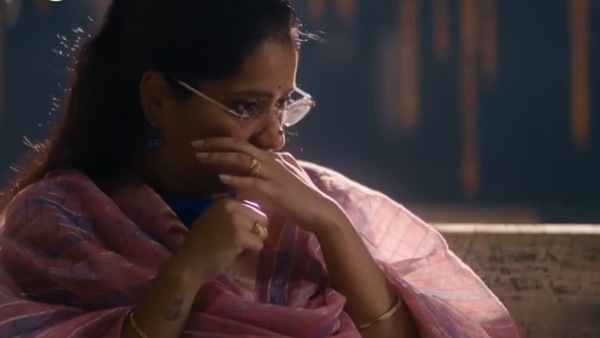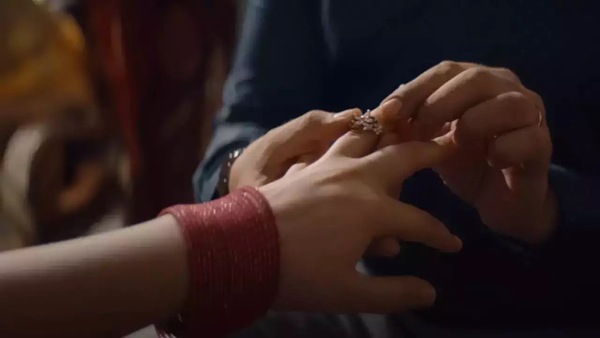Tanuja Chandra’s Wedding.con Is The Antithesis Of Netflix’s Indian Matchmaking
Wedding.con gives a glimpse into how women in India are treated and how they treat themselves. It is a riveting exposition of the pressure they brave from society to get married.

Last Updated: 02.53 AM, Dec 31, 2023
This column is published as part of our newsletter The Daily Show on January 2, 2024. Subscribe here. (We're awesome about not spamming your inbox!)
***
TANUJA CHANDRA’s Wedding.con, centering on matrimonial fraud, is the latest homegrown nonfiction that unfolds with the aesthetic of a reality show. It is also the latest outing from the genre that sacrifices craft at the altar of decorative sensationalism. The colours in the frame are booming, the background score is always dialled up — especially in moments of revelation. The first-hand accounts are depicted with excessive recreations, leaving nothing to imagination. It is a crude form of storytelling that never fully dives into the psychological semantics of the fraudsters: who are they? Why do they do what they do? Is it always the money? Even the form is unimaginative. When not recreating moments, the documentary restricts itself to showcasing Chandra sitting across her subjects and prodding them.
This feels like a wasted opportunity; for the story that emerges, despite and in spite of the crumbling craft, is compelling. Wedding.con gives a necessary peek into the way women in India are treated and the way they treat themselves. It is a riveting exposition of the loneliness that they accrue with time and the pressure they have to brave from society to get married. In the documentary, Chandra tracks five women. All of them are professionals. They have jobs, careers. They had more exposure, and —technically — ‘should have known better’. And yet, all of them fell for the ruse of strangers. Why?

Chandra’s work contends with this question while firmly siding with the women. She treats the query with effusive empathy. As women sit before her and recollect how it happened, the reason stares at us with vividity: in a country where every choice for women is made by someone else, choosing someone was the first expression of agency for many of them. It gave them a sense of control over their lives. It made them feel seen as they continue inhabiting spaces where they are trained to shrink to make place for everyone else.
Take for instance that moment when one of the women (who was scammed out of more than Rs 50 lakhs) shares that she fell for the man (who conned her) because he made her feel worthy. She is a single mother, living with her parents, and a survivor of abuse. Her self esteem and desire were trampled under the weight of an unhappy marriage. When a stranger connected with her on social media and gave her attention, she felt validated for once.
This narrative remains true for all the women who feature in the documentary. One of them shares that she was rejected by men because of a mole on her nose, another survived domestic abuse and was stuck in the marriage till her husband died by suicide. One of them was against dowry and, through a matrimony app, met someone (a fraudster) who convinced her he held the same beliefs as her.
Chandra allows them ample space to share their experience. For the four episodes, the women recollect the origin of the story, trying even then to fathom how things transpired the way they did. It is only in the last two episodes that a journalist and a cop appear, so do Chitra Raghavan, a Central University of New York professor. They articulate how the system has failed to safeguard women. The fraudsters who are caught stay imprisoned for a couple of months till they are freed again. Their accounts only reiterate that there is no country for women.
The problem with their inclusion is that it cuts the women short. It truncates what the documentary was becoming and angles it more towards what the maker wanted it to be.

It marks a rupture in the rhythm and puts the focus on the conmen, a little too late given how absorbing the outing’s gaze on the women was turning out to be. Besides, it would have been more illuminating to see what the women’s parents had to say. Only one of them makes an appearance and contributes to the most cruel moment in the series. One of the women shares that she lost the money she was saving to buy a house. She transferred the money to the man she loved. He duped her. Her mother arrives and admits asking her daughter to take a loan for she ought to face consequences for her actions. The single scene speaks volumes on women’s financial independence in India and how, more often than not, it does little for emancipation.
In essence, Wedding.con is the antithesis of Indian Matchmaking. Headlined by a matchmaker, the Netflix show made arranged marriages look like a straight man’s dream and a woman’s choice of sacrifice. Beneath all that, the show also peddled the dream that is the Indian wedding. Granted, Chandra’s series is far from perfect, but it presents as a necessary (even if flashy and gaudy), contrary narrative.
Stream on Prime Video.
